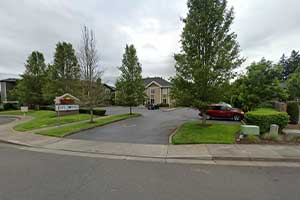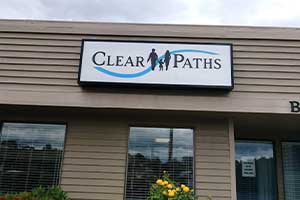Skip To Rehab Listing
With substance abuse treatment easily available, those struggling with alcohol and drug abuse can find assistance within their local area.
Addiction Recovery Service Settings and Treatment Techniques In McMinnville, OR.
The settings of rehabilitation facilities in McMinnville can include the following: short term addiction treatment facilities, detoxification facilities, outpatient counseling, inpatient rehab centers, long term rehab facilities.
Those seeking rehab can find conveniently located facilities nearby with a variety of rehab approaches designed for successful treatment. These approaches, which include both well-established and recently developed approaches, include the following: vocational rehabilitation services, anger management, rational emotive behavioral therapy, dialectical behavior therapy, motivational interviewing, behavior modification.
Programs Addressing Special Requirements for Substance Abuse Recovery
Drug and alcohol abuse can vary based upon circumstances, like the type of drug driving the addiction. Many recovery programs in the McMinnville area provide centers meant to customize treatment to a patient's specific needs. These rehabs include the following: persons with post-traumatic stress disorder, residential beds for client's children, legal advocacy, clients with HIV/AIDS, substance abuse education, child care for clients children.
Clients who are not sure what their needs are can get in touch with these centers for access to patient services that can direct them toward the proper program.
Paying For Recovery - Payment Options & Alternatives
Those struggling with drug and alcohol addiction come from varied economic circumstances, but a variety of funding options makes recovery financially accessible for anybody. Payment options include the following: private medical insurance, private pay, sliding fee scale, payment assistance, county or local government funds, state corrections or juvenile justice funds.
People seeking rehab can contact a recovery program to find out more about what payment options are available to them.
McMinnville, Oregon's alcohol and drug facilities, services, and payment options offer those struggling with alcohol and drug abuse an opportunity to start a sustainable sobriety plan.
Commonly Asked Questions about Addiction and Treatment
What is the process of drug rehabilitation?
"Drug rehabilitation, also known as drug rehab, is a comprehensive process aimed at helping individuals overcome substance use disorders and achieve long-term recovery. The process of drug rehabilitation typically involves several stages and components, which may vary depending on the individual's unique needs, the type of addiction, and the chosen treatment facility. The following is an overview of the general process of drug rehabilitation:
Assessment and evaluation: The first step in drug rehab is a thorough assessment and evaluation of the individual's physical, psychological, and social circumstances. This information helps healthcare professionals determine the severity of the addiction, identify any co-occurring mental health disorders, and develop a personalized treatment plan tailored to the individual's needs.
Detoxification: Detoxification, or detox, is the process of clearing drugs and toxins from the body. Depending on the substance and severity of the addiction, detox may be medically supervised to manage withdrawal symptoms safely and alleviate discomfort. In some cases, medications may be prescribed to ease withdrawal symptoms and prevent complications.
Therapy and counseling: Once the individual is stabilized, they will participate in various forms of therapy and counseling to address the psychological and emotional aspects of addiction. These may include individual, group, or family therapy sessions, and utilize evidence-based approaches such as Cognitive Behavioral Therapy (CBT), Dialectical Behavior Therapy (DBT), or Motivational Interviewing (MI) to help individuals understand the underlying factors contributing to their addiction and develop healthy coping strategies.
Medication management: In some cases, medications may be used during the rehabilitation process to manage withdrawal symptoms, reduce cravings, or treat co-occurring mental health disorders. Medication-Assisted Treatment (MAT) is an example of this, which combines medications with counseling and behavioral therapies to treat opioid or alcohol addiction.
Education and life skills training: Drug rehabilitation programs often include educational sessions and life skills training to help individuals understand the nature of addiction and develop essential skills for maintaining sobriety, such as stress management, communication, and decision-making.
Peer support and group therapy: Engaging in peer support groups, such as Alcoholics Anonymous (AA) or Narcotics Anonymous (NA), can provide valuable encouragement, understanding, and accountability during the recovery process. These groups often play a significant role in helping individuals maintain long-term sobriety.
Aftercare planning and follow-up: As the individual approaches the end of their rehabilitation program, a comprehensive aftercare plan is developed to support their transition back into daily life and prevent relapse. This plan may include ongoing therapy, support group meetings, sober living arrangements, or other resources to help maintain recovery.
Continuous support: Recovery from addiction is a lifelong process that requires ongoing effort and support. Maintaining connections with support groups, therapists, and other individuals in recovery can be crucial in sustaining long-term sobriety and managing potential relapses."
What you should do and how to cope if you are living with an addict?
Living with an individual struggling with addiction can be challenging and emotionally taxing. It's essential to find effective strategies to cope with this situation, protect your own well-being, and potentially influence your loved one towards recovery. Here are some strategies:
- Educate Yourself: Understand that addiction is a disease, not a choice or moral failing. Learn about the specifics of the addiction, its effects, and treatment options. This knowledge can help you better empathize with your loved one and give you an idea of what they're facing.
- Set Boundaries: Establish boundaries that protect your mental, emotional, and physical health. This could involve rules around drug use in the house, or not covering for the addict's responsibilities. Be firm in maintaining these boundaries.
- Avoid Enabling: While it can be difficult to watch a loved one suffer, avoid actions that enable their addiction, such as providing money that may be used on drugs or alcohol, or making excuses for their behavior.
- Communicate Openly and Honestly: Express your concerns without blame or judgment. Use "I" statements to express how their behavior affects you and others in the house.
- Encourage and Support Treatment: Encourage them to seek professional help. Show support for their efforts to engage in treatment and maintain recovery.
- Take Care of Yourself: It's crucial to look after your own health too. Make time for activities you enjoy, maintain a healthy lifestyle, and seek support when needed. You cannot pour from an empty cup, so ensure you're well-equipped mentally and physically to cope with the situation.
- Seek Support: Consider joining a support group for families and friends of individuals with addiction, such as Al-Anon or Nar-Anon. These groups can provide a community of people who understand your experiences and can provide advice, support, and a safe space to share your feelings.
- Consider Professional Guidance: If the situation becomes unmanageable or you're unsure how to proceed, seek help from a counselor or therapist familiar with addiction. In extreme cases, a professional intervention may be necessary.
What are the signs of addiction?
Physical symptoms: Changes in appearance, such as weight loss or gain, poor hygiene, bloodshot eyes, or constricted pupils, can be indicative of addiction. Additionally, the person may display signs of intoxication or withdrawal, such as tremors, sweating, or flu-like symptoms.
Behavioral changes: Addiction can lead to significant shifts in behavior, such as increased secrecy, social isolation, or sudden mood swings. The person may neglect responsibilities, withdraw from activities they once enjoyed, or display uncharacteristic aggression or irritability.
Loss of control: A hallmark of addiction is the inability to control substance use or engagement in harmful behaviors, even when the person expresses a desire to stop. This can lead to increased frequency or intensity of use, as well as unsuccessful attempts to quit or cut down.
Preoccupation: The person may become preoccupied with obtaining, using, or recovering from the effects of the substance or behavior, often at the expense of other aspects of their life.
Risk-taking: Addiction can lead to increased risk-taking behaviors, such as using substances in dangerous situations, driving under the influence, or engaging in risky sexual activities.
Neglecting relationships: Addiction can strain personal relationships, as the person may prioritize their substance use or behavior over their connections with friends and family.
Changes in sleep patterns and energy levels: Addiction can cause disruptions in sleep patterns, leading to insomnia or excessive sleepiness. The person may also experience fluctuations in energy levels, such as periods of hyperactivity followed by lethargy.
Tolerance and withdrawal: Over time, individuals with addiction may develop a tolerance to the substance or behavior, requiring higher doses or more frequent engagement to achieve the desired effect. If the person stops using the substance or engaging in the behavior, they may experience withdrawal symptoms, such as anxiety, irritability, insomnia, or physical discomfort.
Continued use despite negative consequences: A key sign of addiction is the persistence of substance use or engagement in harmful behaviors despite experiencing negative consequences, such as health issues, relationship problems, financial difficulties, or legal troubles.
Neglect of responsibilities: Addiction can cause a person to neglect personal, professional, or family obligations, resulting in job loss, financial difficulties, or relationship problems.












